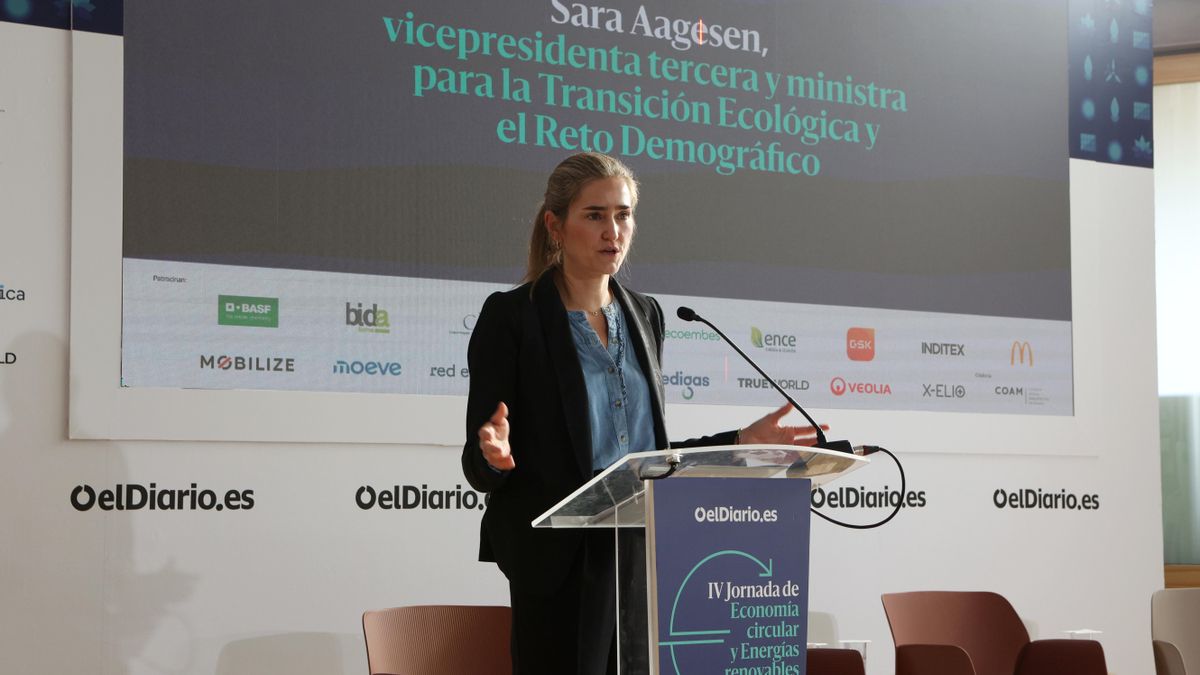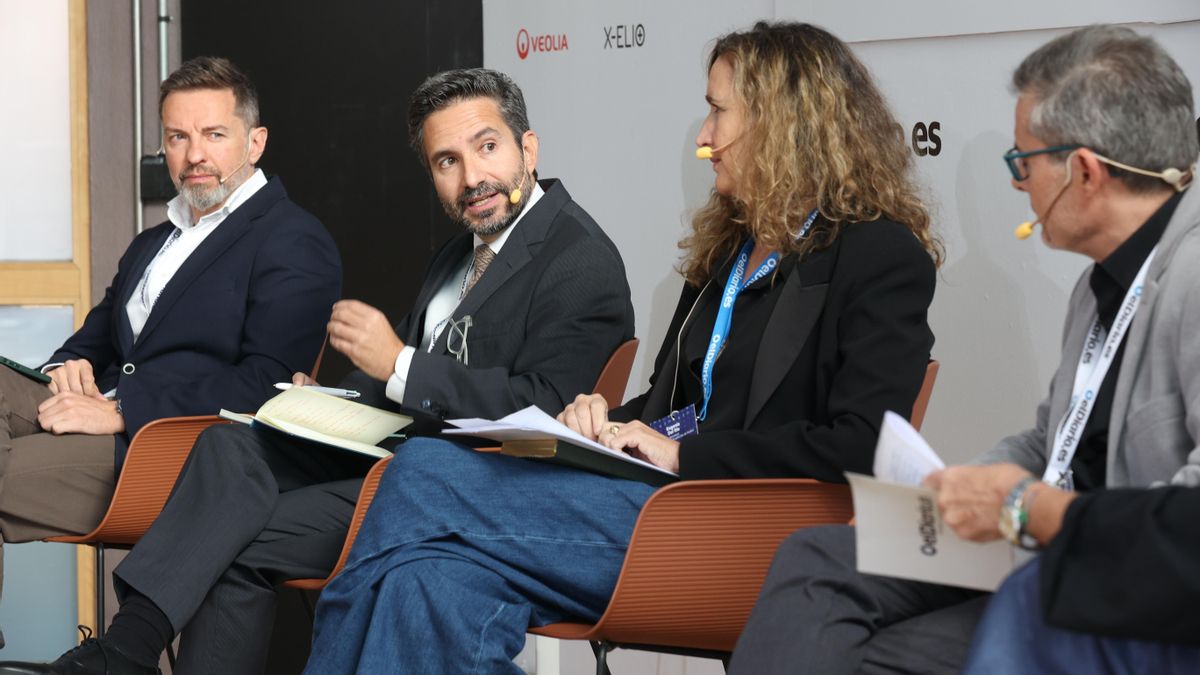“Air quality is a basic pillar in the quality of life in cities and must, therefore, be among our first concerns and priorities.” Miguel Carpintero, responsible for Public Policies and EU Coordination at Moeve, expressed himself with this firmness during the Circular Economy and Energy Conference of elDiario.es, adding: “A lot of progress has been made in this since 2005 onwards with motorization standards, but there is much more to advance and technologically the electric car is a promise that will bring great advantages.”
Ignacio Rodríguez Solano, director of Institutional Relations and Renault Group Spain Foundation, reinforced the idea that the path towards the electric vehicle is inexorable and argued that “it is absolutely unbeatable, not only in terms of air quality in the hyper-urban environment, but also in the periphery where public transport is often weaker.” “It is true that we are going at a slower pace than expected, but we have also had very positive signs, for example in the month of August in Madrid, registrations between vehicles and pure electric plug-in hybrids exceeded 20%, which is close to European levels,” he noted regarding the objectives. He also made reference to the 3E vehicle mentioned by Ursula Von der Leyen a couple of weeks ago: European, economical and ecological.
After the intervention of Sara Aagesen, third vice president and minister for the Ecological Transition and the Demographic Challenge, at the first table of the day, dedicated to the redesign of cities, the technical advisor for Land and Urban Policies of the Ministry of Housing and Urban Agenda, Eduardo de Santiago, warned that “although economic growth is key, it must be accompanied by social inclusion and environmental sustainability.” Furthermore, he emphasized that 'smart cities' should not be reduced to technology and gadgets, but rather should include the human component, demanding public and citizen participation in decision-making. “Citizens are the fundamental component of the smart city,” said De Santiago.

Regarding construction, Eugenia del Río, Secretary of the Official College of Architects of Madrid, pointed out that although the existing regulations are quite demanding in energy criteria, citizens are demanding more. “When they ask us for projects, they go beyond the mandatory regulations, people ask to include healthy materials, green areas, renewable energy,” he stressed. Asked by the moderator, Del Río defended that the legislation should be more ambitious, but always accompanied by aid and coordination of public administrations. “Just as we talk about 'smart cities', we also have to talk about 'smart regulation', a regulation that is preceded by impact studies,” said Miguel Carpintero.
Complementing this vision, Eduardo de Santiago pointed out the recycling of existing buildings as a key to sustainability: “Instead of cities continuing to grow, consuming new land, we must focus on recycling the consolidated city.” “The first regulation that required buildings to have thermal insulation in Spain dates back to 1979 and practically 60% of the built stock is previous, so our buildings are true energy wasters,” he lamented.

Growth at the expense of what?
Eduardo de Santiago pointed out that the spontaneous demographic growth and the concentration of population in centers such as Madrid and the Mediterranean coast are occurring “at the expense of other territories.” “Perhaps it is not the most fair from a territorial point of view, we should opt for other models,” he assessed with the example of Germany as a more polycentrically developed country with a more articulated territory than Spain. “This is achieved by decentralizing economic initiatives, for example, towards those territories, recognizing the value that those territories provide,” he said when asked by the moderator Marta García.
“We want to recover the European city model, small cities within a large city that do not depend on each other,” was the bet of the architect Eugenia Del Río who highlighted the error of creating dormitory cities due to their unsustainability: “They are not really cities and they generate an overwhelming amount of displacement.”
Decarbonization in circulation
The issue of last mile delivery has emerged during the debate as an unavoidable topic of urgency for the sustainable redesign of cities due to the explosive growth of the delivery sector in recent years. “There are more than a million last-mile delivery vehicles that are more than 20 years old, with a lot of emissions, very old vehicles, and they are responsible for 14% of traffic, but more than 20% of CO2 emissions,” said Ignacio Rodríguez Solana. “An effective charging plan would be needed in specific locations where they can charge because they are professional vehicles that are in use 90 or 95% of the time,” he noted.
On the same topic, Miguel Carpintero wanted to add the importance of self-charging of electric cars in the particular case of last mile driving: “Given the still low penetration it has, we are not seeing all the casuistry that we are going to have, the needs of these vehicles are going to be very different from those of driving on the road,” he stated.
In the final stretch of the debate, the role of the citizen was addressed, Miguel Carpintero highlighted: “Citizens have an ultimate responsibility in many ways, in the end all policies have to be accepted and adopted by the citizen. The consumer chooses and bets on what is ecological but we cannot ask him to be brave, we must encourage him with a policy of tax incentives.”